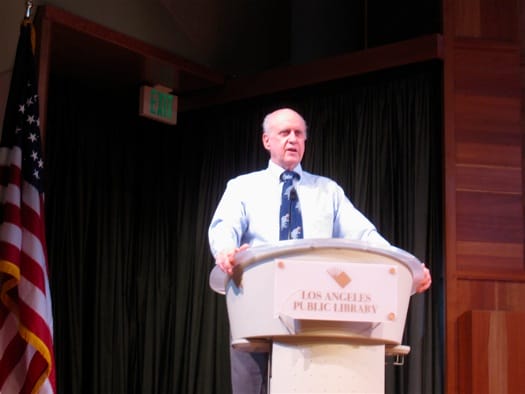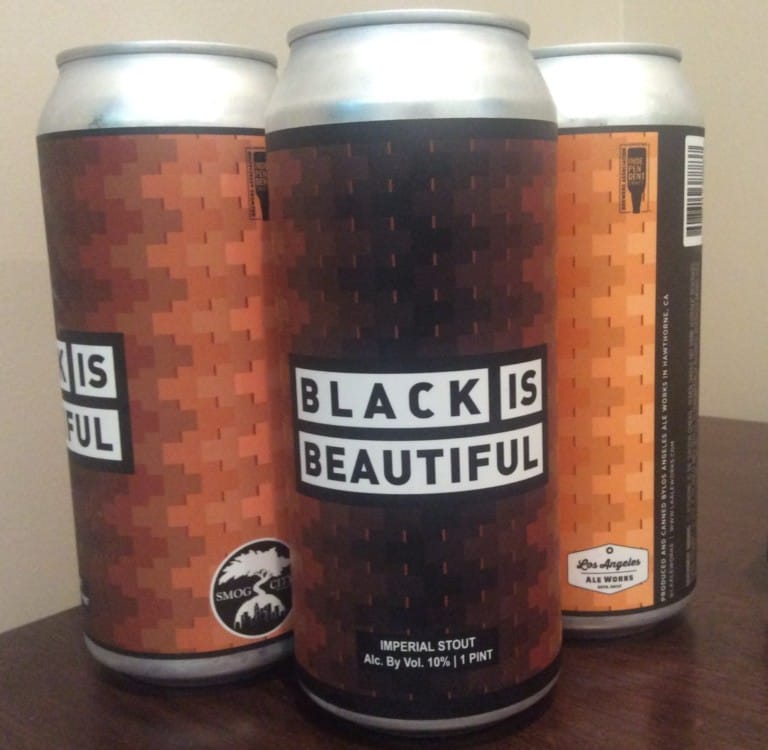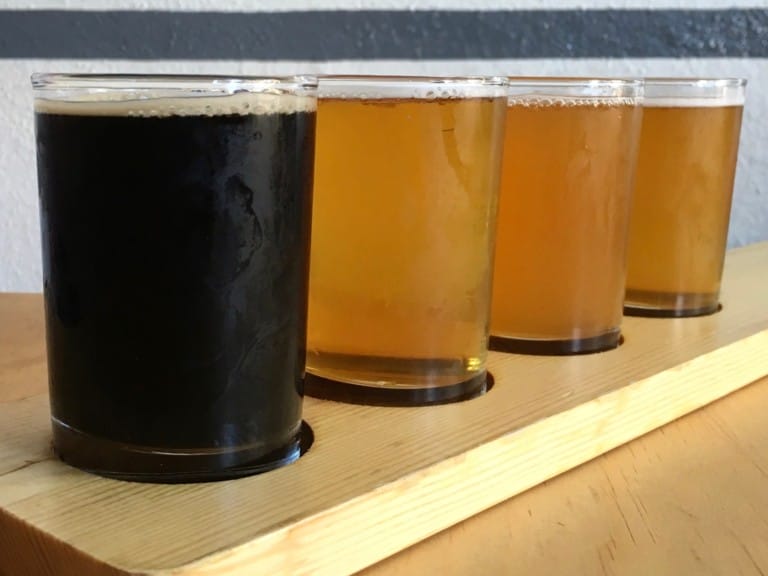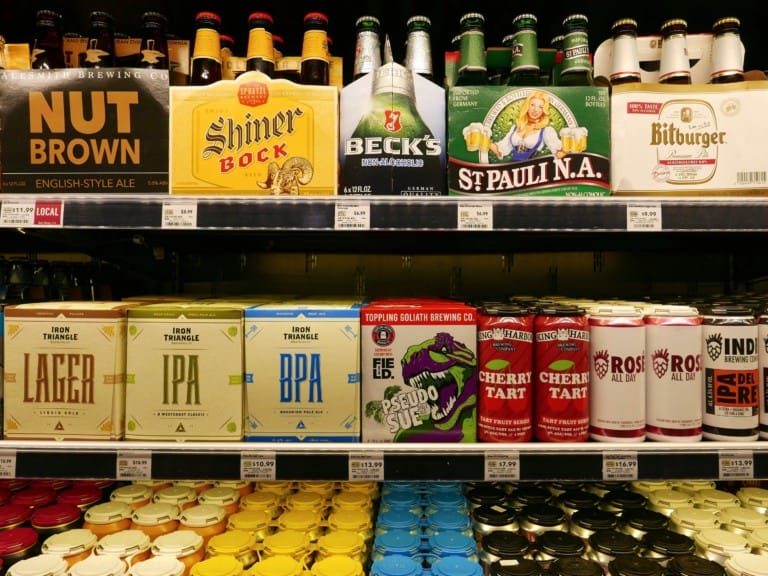Younger Angelenos might think that the word “brewery” entered the City of Los Angeles lexicon in 2009, with the advent of Eagle Rock Brewery, and that professional baseball got going in 1958, when the Dodgers migrated from Brooklyn. On January 8, journalist Charles Perry – president of the Culinary Historians of Southern California – presented a multi-media lecture titled “Of Beer and Baseball: The Maier Brewing Dynasty” at the LAPL Mark Taper Auditorium and managed to deftly dispel those notions and more.
The core of Perry’s lecture focused on Bavarian immigrant Joseph Maier’s relationship with beer and baseball, but he began with a Mayflower-related lead-up. That’s when Pilgrims brought the first barrels of beer to America. In February 1621, they shared the first beer with a Native American man from Maine, a man that already spoke English due to prior contact with English speakers.
Beer evidently fell out of favor after the Revolution, when it became understood that alcohol was a healthy “tonic.” Why mess around with beer when whiskey and rum were handy?
The first U.S. lager brewery was in Philadelphia in 1839. Steam beer was the byproduct of Western settlers who had lager yeast but no access to the necessary cold temperatures.
Okay, enough about America at large. Let’s focus on Los Angeles. According to Perry, the L.A. population tripled in the 1850s. As a result, 1854 brought about the city’s first newspaper and first brewery, New York Brewery opened at 3rd & Main on a stretch of land that previously housed vineyards. In 1874, Ed Preuss debuted Philadelphia Brewery, which went through a quick succession of owners, culminating with Dietrich Mahlstedt in 1875.
That’s all interesting, but the star of Perry’s story was Joseph Maier, a German-trained brewer who arrived from Bavaria at age 25. He bought an existing German saloon near where City Hall now stands. In 1882, he bought Philadelphia Brewery. Maier made the beer and business partner George Zobelein managed the books and sold the beer. Their efforts really took flight in 1877, when New York Brewery closed and only their brewery remained.
Perry’s beer odyssey next took us to Washington Gardens, where the Los Angeles Traffic Courts now stand. A horse-drawn trolley line connected the city to the park, which featured picnicking, orange grove “and some ostriches, of course.” Apparently ostriches were all the rage in 19th Century Los Angeles. Anyway, Maier added a merry-go-round, Ferris wheel, roller coaster, hot air balloon rides, shoot-the chutes (similar to a log flume), bowling alley, dance pavilion, 4000-seat-theatre and 10,000 seat baseball diamond.
In 1905, the Los Angeles Angels first started playing in the Pacific Coast League, battling teams like the Oakland Oaks and Santa Cruz Sand Dabs.
Maier died in 1905. Zobelein opened a rival brewery in 1894, which became Eastside Brewery, Pabst, and ultimately, the Brewery Art Complex. However, the Maier Brewing Company story continued. Joseph’s son Fred Maier previously trained as brewer and set up satellite breweries in Arizona, New Mexico, Utah and Mexico, to name four. The big sellers for Maier were Padre, Golden Velvet, Alpine and the leading seller, Select.
This is where the Maier family history converges with baseball. Fred Maier thought the Angels needed a crosstown rival and started the Vernon Tigers. Vernon (along with Venice) was the entertainment (and drinking) center of Los Angeles. Vernon also had prize fights and even more drinkers.
How many more drinkers? Mike Doyle’s bar at 38th & Santa Fe had 37 bartenders per shift, each with their own register, which ran 24 hours per day. “Long before there were peanuts and cracker Jacks at ballparks, there was beer,” said Perry. Maier clearly knew his audience and opened the baseball stadium right next to Mike Doyle’s.
Maier died and was succeeded by younger brother Eddie, a playboy and “fun loving guy” who “really liked race cars” and even employed a famous driver named Barney Oldfield to drive his Fiat 90 at venues like Van Nuys Speedway.
According to Perry, when it came to baseball, Eddie Maier “could have become professional if he wanted to take a huge cut in pay.” He pitched for Los Angeles High School, the University of California at Berkeley and two local ballclubs, the Fats and the Elks.
Maier also became known for holding massive barbecues for Elks and Shriners, including a legendary barbecue in 1914 that included 4000 pounds of beef, 50 whole sheep and 40 bull’s heads, “the most esteemed type of barbecue.” They also served 500 pounds of chili, 2000 tamales, 2000 tortillas at his “rancho” that day.
The Vernon Tigers temporarily moved to Venice. Manager Hap Hogan, a famous catcher, died in 1915, and in 1916, Eddie Maier sold the team to Fatty Arbuckle, five years before his scandal.
Even though the Maier involvement with baseball was over, Perry still ran through some more pre-Dodgers baseball history. For example, William Wrigley bought the Angels in 1926 and moved them to Avalon Boulevard, which was named for a town on Catalina Island where he lived. The Vernon Tigers were purchased in 1926 and moved to San Francisco, where they played as the Mission Reds.
Back to beer. During Prohibition, Maier Brewing made “near beer,” which wasn’t always “near” enough, and even after World War II, it was still the fifth largest brewery on the West Coast. Brew 102 was cheaper but still popular. Maier also brewed beer for supermarkets like Safeway and Market Basket. Maier Brewing Company finally folded in 1974 after making late brews like Soul malt liquor.
If you’d like to listen to Perry’s full lecture, CLICK HERE.
The Culinary Historians of Southern California is a not-for-profit organization that supports the culinary collections at the Los Angeles Public Library.









Blog Comments
Ignacio Salas
January 31, 2011 at 11:39 PM
In 1892 the Los Angeles Angels first played in the California League….In 1903 the Los Angeles Angels joined the Pacific Coast League…..
Joshua Lurie
February 1, 2011 at 9:14 AM
Ignacio, thanks for providing more L.A. baseball context.
Three Noted Baseball Historians Make Discovery That Further Illustrates “America’s Pastime” Took Root Alongside Our Nation’s Founding | Baseball Cards Sets
January 22, 2011 at 4:01 PM
[…] Food GPS » Culinary Historian Shares History of Beer and Baseball … […]
World Spinner
January 20, 2011 at 10:59 AM
Food GPS » Culinary Historian Shares History of Beer and Baseball ……
Here at World Spinner we are debating the same thing……
Tweets that mention Food GPS » Culinary Historian Shares History of Beer and Baseball in Los Angeles -- Topsy.com
January 20, 2011 at 9:39 AM
[…] This post was mentioned on Twitter by foodgps and Emily Smith, Caterham Business. Caterham Business said: Culinary Historian Shares History of Beer and Baseball in Los Angeles http://bit.ly/h7qkrr […]
Jane
January 19, 2011 at 7:10 PM
Interesting write-up, Josh!
Joshua Lurie
January 19, 2011 at 7:44 PM
Thanks, Jane. Charles Perry definitely knows his L.A. history. He literally didn’t refer to a single note during what must have been a 45-minute lecture. It also wasn’t dry. Very impressive.